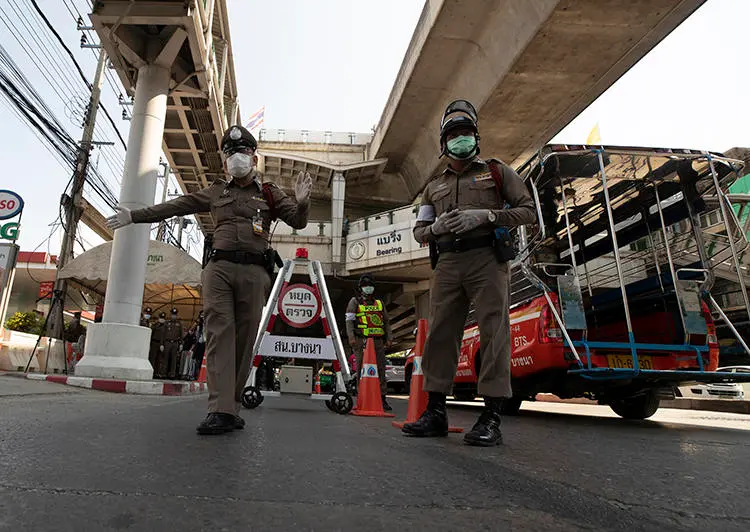Bangkok, March 26, 2020 — Thailand should uphold press freedom and refrain from harassing and restricting reporters while emergency rule is imposed to contain the coronavirus outbreak, the Committee to Protect Journalists said today.
Prime Minister Prayut Chan-ocha today imposed a state of emergency in the country, set to last until at least April 30, according to news reports.
The prime minister’s office published an emergency decree which bars “reporting or spreading of information regarding COVID-19 which is untrue and may cause public fear, as well as deliberate distortion of information which causes misunderstanding and hence affects peace and order or public morals.”
The decree empowers authorities to order journalists and media groups to “correct” reports deemed incorrect, and allows for authorities to pursue charges against journalists under the Computer Crimes Act, which allows for five-year prison penalties for violations.
“Thai authorities should not use the COVID-19 emergency situation as a pretext to censor or restrict journalists or media organizations,” said Shawn Crispin, CPJ’s senior Southeast Asia representative. “Journalists serve a crucial role in keeping the public informed during health crises. They should be allowed to do their jobs without fear of reprisal.”
The decree was issued under Thailand’s 2005 Emergency Decree on Administration in Emergency Situations.
During a press conference yesterday announcing the plan to enact emergency rule, Prayut warned journalists and social media users against disseminating “false information,” saying that he will use “every measure of the law” with “firmness and resolve” to deal with violations, according to an English translation of his speech, reviewed by CPJ.
Prayut also called on media outlets to check their facts with the government’s newly created COVID-19 Administration Centre, according to the Bangkok Post.
Authorities have investigated and arrested social media users for criticizing the government’s response to the health crisis and allegedly spreading rumors, according to local news reports.
Prayut, who controlled Thailand’s military junta from 2014 to 2019, was elected prime minister in March 2019. During his military rule, CPJ documented Thai authorities’ use of national security laws and military orders to restrict the press. Following his election, CPJ sent a letter to Prayut calling on him to restore press freedom in the transition to civilian leadership.
